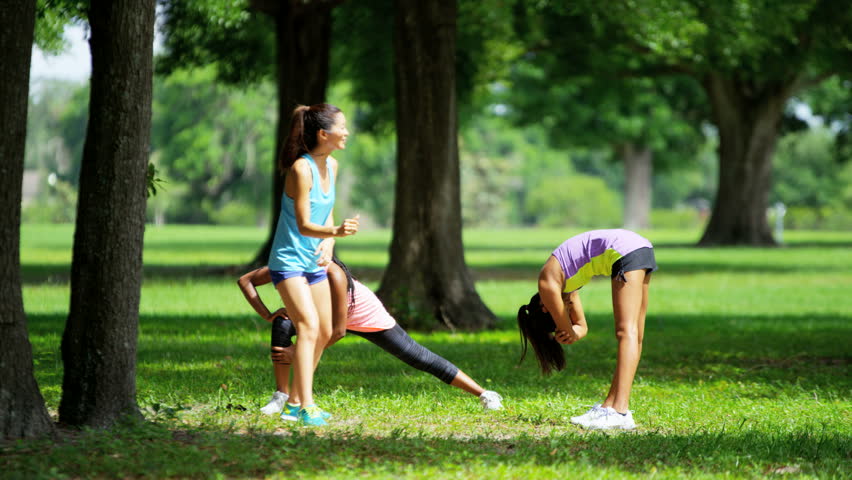Discuss the role of health and fitness in improving overall quality of life and well-being.
Discover how health & fitness benefits can improve your quality of life. Explore the positive impact on your well-being with regular exercise

Health and fitness play a vital role in improving overall quality of life and well-being. They are interconnected aspects of our lives that contribute to physical, mental, and emotional well-being. Here's a comprehensive look at their roles and the benefits they bring:
Physical Health:
Preventing Chronic Diseases: Regular exercise and a healthy diet can help prevent a range of chronic conditions, including heart disease, diabetes, obesity, and certain cancers.
Increased Lifespan: Studies consistently show that individuals who maintain a healthy lifestyle tend to live longer, with a higher quality of life in their later years.
Improved Immune System: Regular physical activity and a balanced diet boost the immune system's ability to fight off infections and illnesses.
Mental Health:
Stress Reduction: Exercise triggers the release of endorphins, which are natural mood lifters. It reduces stress and anxiety, promoting a sense of well-being.
Improved Cognitive Function: Physical activity is linked to enhanced cognitive function, memory, and creativity. It can lower the risk of cognitive decline and neurodegenerative diseases like Alzheimer's.
Better Sleep: Regular exercise can improve the quality and duration of sleep, leading to increased alertness and mental clarity during the day.
Emotional Well-being:
Enhanced Self-esteem: Achieving fitness goals and maintaining a healthy lifestyle can boost self-confidence and self-esteem.
Increased Happiness: Exercise stimulates the release of dopamine and serotonin, neurotransmitters associated with feelings of happiness and contentment.
Better Coping Mechanisms: People who are physically fit tend to handle life's challenges and stressors more effectively.
Social Well-being:
Community and Support: Engaging in fitness activities often involves joining communities or groups, providing social interaction and a sense of belonging.
Shared Goals: Fitness can bring people together, creating a supportive environment where individuals work towards common health and wellness objectives.
Improved Daily Functioning:
Energy and Vitality: Regular exercise increases stamina and energy levels, allowing individuals to engage more fully in their daily activities and pursuits.
Functional Independence: Maintaining fitness helps individuals maintain their independence as they age by preserving mobility and reducing the risk of falls and injuries.
Quality of Life in Aging:
Healthy Aging: Fitness and good health contribute significantly to a higher quality of life in older adults, enabling them to remain active and independent longer.
Reduced Healthcare Costs: Healthy individuals often require fewer medical interventions, leading to lower healthcare expenses.
Long-term Benefits:
Disease Prevention: Investing in health and fitness early in life can pay off in later years by reducing the risk of many age-related diseases.
Financial Savings: Preventing chronic diseases and maintaining good health can lead to substantial long-term savings on medical expenses and medications.
In conclusion, health and fitness are cornerstones of a fulfilling and satisfying life. They impact not only our physical health but also our mental and emotional well-being. By prioritizing these aspects of our lives, we can enjoy a higher quality of life, greater longevity, and a more positive outlook on the future.
Work and Productivity:
Good health and fitness can have a positive impact on one's professional life. When you're physically and mentally fit, you're more likely to be productive and focused at work.
Reduced sick days and increased energy levels can lead to greater career opportunities and job satisfaction.
Personal Fulfillment and Goals:
Achieving health and fitness goals can be incredibly fulfilling. Whether it's running a marathon, losing weight, or building muscle, these accomplishments contribute to a sense of achievement and purpose.
Setting and attaining fitness goals can also provide a sense of structure and discipline that extends to other areas of life.
Relationships:
Healthy individuals are better equipped to nurture relationships. They have the physical and emotional stamina to participate in activities with loved ones and support them in times of need.
Couples who engage in physical activities together often report higher relationship satisfaction.
Self-Discipline and Routine:
Maintaining a fitness regimen requires commitment and self-discipline. These skills can spill over into other aspects of life, such as time management and goal-setting.
Establishing a regular exercise routine can help create structure and stability in daily life.
Nutrition and Diet:
A balanced diet is a key component of health and fitness. Proper nutrition supports overall well-being by providing essential nutrients for bodily functions.
Good nutrition can prevent weight gain, improve digestion, and boost energy levels.
Environmental Awareness:
Engaging in outdoor physical activities fosters a greater appreciation for the environment. It connects individuals with nature and encourages sustainable practices.
People who are physically active outdoors often become advocates for conservation and eco-friendly lifestyles.
Inspiration and Role Modeling:
Individuals who prioritize health and fitness can serve as sources of inspiration for others. Their dedication can motivate friends and family to adopt healthier lifestyles.
By leading by example, they contribute to a culture of wellness in their communities.
Happiness and Fulfillment:
Ultimately, health and fitness contribute to a sense of happiness and fulfillment in life. Feeling good physically and mentally allows individuals to fully enjoy their experiences and pursue their passions.
In summary, health and fitness are not just about looking good; they are about feeling good and living life to the fullest. They have a profound impact on various aspects of our lives, from our physical health to our mental and emotional well-being, relationships, and personal fulfillment. Embracing a lifestyle that prioritizes health and fitness can lead to a richer, more satisfying life that is filled with opportunities for growth, happiness, and longevity.
Mood Regulation:
Engaging in regular physical activity has been shown to regulate mood and reduce the risk of depression and anxiety disorders. Exercise stimulates the release of chemicals in the brain that promote a positive outlook on life.
A consistent fitness routine can act as a natural mood stabilizer, helping individuals better cope with life's ups and downs.
Pain Management:
For individuals dealing with chronic pain conditions, maintaining an active lifestyle can be crucial. Exercise can help reduce pain perception and improve physical function.
It can also aid in the rehabilitation process after injuries, surgeries, or medical treatments.
Cognitive Resilience:
Health and fitness are linked to cognitive resilience, which is the brain's ability to adapt to stress and bounce back from challenges.
Physical activity and a healthy diet promote brain health and can reduce the risk of cognitive decline associated with aging.
Time Management and Prioritization:
Balancing work, family, social life, and fitness requires effective time management and prioritization skills. These skills can spill over into other areas of life, enhancing overall productivity.
People who make time for fitness often find themselves more organized and focused in their daily activities.
Global Impact:
On a broader scale, a population that prioritizes health and fitness can have a positive impact on healthcare systems and the economy.
Lower healthcare costs, reduced absenteeism, and increased productivity can benefit society as a whole.
Long-term Well-being:
As we age, the benefits of health and fitness become even more apparent. Older adults who maintain an active lifestyle are more likely to preserve their independence and quality of life.
Being physically fit in later years can lead to a more active and engaged retirement.
Personal Growth and Resilience:
The journey to better health and fitness often involves overcoming obstacles and setbacks. This process fosters personal growth, resilience, and a greater sense of self-efficacy.
People who have achieved their health and fitness goals are more likely to believe in their ability to overcome challenges in other areas of life.
In conclusion, health and fitness are integral components of a well-rounded and fulfilling life. They have far-reaching effects that extend beyond physical appearance and extend into mental, emotional, and social well-being. By embracing a lifestyle that emphasizes health and fitness, individuals can enjoy a higher quality of life, greater happiness, and increased resilience to life's challenges. Moreover, the positive impact of prioritizing health and fitness ripples through communities and society, ultimately contributing to a healthier and happier world.
What's Your Reaction?















